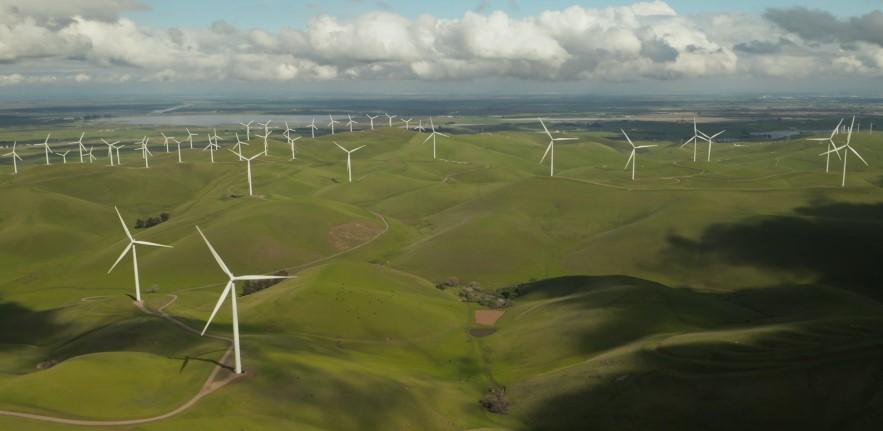
18 June 2020 – The European Council must now take the chance to create a healthier, fairer and secure environment, argues Ursula Woodburn of the European Corporate Leaders Group.
Countries around the world are facing painful economic decisions as they design their recovery from the damage caused by Coronavirus. While many are hearing the need to align immediate spending packages with longer-term goals, the idea of a green recovery is being met with political opposition from many quarters.
Present economic forecasts make for difficult reading and the European Central Bank suggests European economies have already shrunk by 3.6 percent, with an expected 8.7 percent contraction over the entire year. But any recovery plan that seeks only a return to business-as-usual fails to understand the much deeper challenges ahead.
If we can take one positive from the pandemic, it should be that governments learn from the way Covid-19 has exposed flaws in the present systems. Generations-old conversations about injustice have been borne out by death rates amongst BAME communities; and the urgent need to build resilience to shocks like climate change has been illustrated by the impacts of this health crisis on economies and societies.
The EU's European Green Deal, launched before the crisis hit, wrestles with the very same systemic weaknesses revealed by the pandemic. It is this prescience that means the Green Deal offers both the direction for recovery and an essential template for long-term stability through the transition to a climate neutral, prosperous and fair continent by 2050.
When leaders meet at the European Council this week, the collaborative impetus they gave to the Green Deal last year must spur their political will now to use stimulus packages for the energy transition and decarbonisation of economies. It is hard for governments to watch their countries suffer through a crisis and not speak and spend in response to that one event, but short-termism risks squandering this opportunity to address not just one crisis but future shocks that threaten to do more harm.
The broad common ground member states have found over the Green Deal is still relevant in the Covid context and leaders know levels of investment needed now to deliver climate neutrality will be lower than tackling more complex future adaptation and mitigation actions. A well thought-through EU recovery programme can shift financial flows away from unsustainable, fossil-fuel based economies, restoring economic activity and accelerating the shift to a sustainable economy.
In line with political ambition, leading businesses are already preparing to deliver on the Green Deal target of a net zero European economy by 2050, recognising that climate action is well aligned with building new industries, delivering better health, and creating pleasant places to live. Business alliances for a green recovery have been formed in Germany, France, Spain, Finland and Slovenia – with support from hundreds of companies. A recent announcement from Unilever of a €1 billion fund for climate and nature, alongside commitments to a deforestation-free supply chain by 2023 and net zero emissions from products by 2039, indicates an ambition in line with the scale of the challenge.
A new briefing by the European Corporate Leaders Group urges governments to work with business to deliver a stronger, collaborative recovery that repairs the social and economic damage from Coronavirus while addressing deeper climate and environmental issues at the same time. It calls for a focus on:
- A green, just and resilient recovery: By placing the European Green Deal at its heart, Europe’s recovery plan can address the social impacts of the crisis, create jobs, support a just transition and mobilise green investment in line with net zero goals.
- Clear climate ambition: Europe’s net zero 2050 climate ambition backed up by strong policies provides companies with the clarity and confidence they need to unlock further investments in climate solutions. The EU Climate Law should be swiftly enacted, and the 2030 target for greenhouse gas emission reductions strengthened to at least 55 per cent.
- Industrial innovation and a circular economy: Ensuring a circular economy and creating new markets for low carbon materials will lead to more resilient supply chains and create jobs while reducing environmental impacts. Investing in clean industrial innovation can help to renew Europe’s industrial base and secure its future competitiveness.
- Clean energy, buildings and mobility: By adopting an integrated approach to clean energy, buildings and mobility, the EU can support high-quality jobs, broader social and environmental benefits such as improved air quality, and accelerate the move towards a net zero economy.
- Sustainable land use and nature: Healthy nature underpins our food system, rural livelihoods and agricultural productivity. Stimulus spending should be directed towards reducing emissions from land use and supporting nature-based solutions.
- Sustainable finance: Sustainable finance reforms are needed to avoid future economic crises (and avoid deepening the current one), through measures to reduce systemic risk in the financial system.
As part of the 2015 Paris Agreement all governments pledged to set more exacting targets by 2020 to reduce greenhouse gas emissions. That hard-won moment helped clear the path for the development of the Green Deal, with ambition to overhaul every major aspect of the European economy. Although recognisable in much of its detail, the scale and intention of the Green Deal is revolutionary and the EU must not lose sight of how far they have already come. Coronavirus has not diminished the urgency needed to decarbonise our economies and restore nature, and climate targets still need to be scaled up to at least 55% for climate impacts to have a chance of being controllable. European leaders should remember that the right decisions made this year can help create a healthier, fairer and secure environment. Member states must not find their way out of this crisis by worsening a future one.
Read the briefing on the Green Deal and Europe's economic recovery and access CLG Europe's net zero knowledge hub for EU decision-makers.
This article was first published on BusinessGreen.com on 18 June 2020





